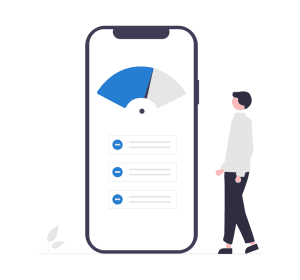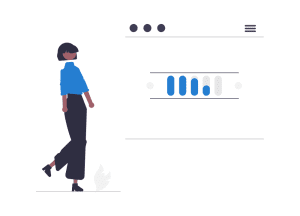If you’re in the market for your next car or looking to fund your first vehicle, you may be confused as to which way is cheapest. Two of the most popular ways to get a car are through car finance or a personal loan. Both can have some great benefits, but they may not suit everyone. Our guide below compares car finance and personal loans and helps you decide which is right for your circumstances. By considering the type of car you want, your ownership and your financial situation, read on to find out how to decide if you should get a car on finance or apply for a personal loan.

Personal loans
A personal loan UK is a straightforward way to borrow money for a car. You can get a personal loan from a bank, building society or other finance lenders and if accepted can have the money deposited into your bank account, sometimes the very same day! You can then shop around for the car you want just like a cash buyer and aren’t tied down to a dealership. Instead, you can buy your car from anywhere you like. However, you won’t have the same level of protection as you would with a dealer when you buy from a private seller.
There’s no need to put a deposit down for a personal loan because you just borrow as much as you need to fund your car purchase. Many young or new drivers choose an amount which can cover their first car and also their first year’s insurance as it can be quite expensive. Buying a car with a personal loan means you can buy the car outright and be the owner of the vehicle from the start of the agreement.

When you buy a car through a personal loan you will pay back your agreed amount of money till the end of your chosen term. You can spread personal loan payments over 1-7 years but if you choose to sell the car during the agreement, you will still need to continue to pay the finance company. Or if you sell your car for an amount more than the loan is worth, you can use this balance to settle it. Personal loans can benefit from a fixed rate of interest throughout, but your interest rate is calculated based on a number of factors and subject to your personal circumstances.
Find out more about how car finance interest rates are calculated.
Benefits of personal loans
- Lower interest rates for good credit
- Compare a range of loans
- Spread the cost up to 7 years
- Own the car from the outset
- No deposit needed
- Choose to pay the full cost of the car or part of it
- Straightforward and easy
- Fixed interest rates and monthly payments
- Can be settled at any time
Drawbacks of personal loans
- It may not be the cheapest option for people with bad credit
- No manufacturer incentives that you get with car finance
- You’ll be responsible for the cost of running a car
- The car’s value will depreciate throughout the term
Is a personal loan better than car finance?
When it comes to getting a car through a personal loan, there are many benefits. However, the biggest factor is your credit situation. People with better credit scores can have access to the best rates and have easier acceptances. If you have good credit, it can be one of the cheapest ways to borrow money for a car. However, those with less than perfect credit situations may end up paying more than they need to. Personal loans do give you more freedom though as you can modify the car or have the freedom to sell it when you want.
Car finance
Getting a car on finance can be a great way to spread the cost of car ownership. If you’ve never had a car on finance before, you may be wondering how car finance works. More people than ever are choosing to finance their next car. You can obtain a car finance deal by using a car finance broker like us or at a car dealership. In the UK, the two most popular types of finance are hire purchase and personal contract purchase. Both HP and PCP are a type of secured loans. This means if you fail to make your repayments on time and in full, the lender has the right to seize the car. Let’s take a look at each agreement in more detail.

Hire Purchase
Getting a car through hire purchase is an easy way to fund your next vehicle. We specialise in hire purchase car finance and can compare a range of lenders on your behalf. Within hire purchase, you can choose whether to put down a deposit and then make monthly payments with interest till the end of the term. Having a deposit for car finance can help to save you money as it reduces how much you borrow and can make car finance more affordable but there are plenty of affordable no deposit options too. Throughout the agreement, the lender owns the vehicle until you make the final option to purchase fee and then the car is yours to keep! You can also choose to hand the car back or use your car as part exchange if you don’t want to own it. Hire purchase monthly payments can be higher than other forms of finance as you spread the full cost of the car you want. However, it can be better suited to people with lower credit scores as the lender can use the car as collateral.
Benefits of HP
- Lower interest rates for good credit
- Compare a range of loans
- Spread the cost up to 7 years
- Own the car from the outset
- No deposit needed
- Choose to pay the full cost of the car or part of it
- Straightforward and easy
- Fixed interest rates and monthly payments
- Can be settled at any time
Disadvantages of HP
- The lender can size the car if you fail to repay
- You won’t own the car till the last payment
- Monthly payments can be higher than other options
- The rate of interest offered can reflect the level of risk to the lender
Personal Contract Purchase
If you’re looking for a flexible form of finance with lower monthly payments, a PCP car deal could be right for you. Personal Contract Purchase is actually a form of HP, but you have more freedom at the end of your deal. It works in the same way as HP where you make monthly payments till the end of the term, usually over 3-5 years and pay interest. You can benefit from 0% deals too from many manufacturers. Monthly payments tend to be lower as you cover the cost of deprecation rather than spread the cost of your chosen vehicle, then at the end of your deal, you can either choose to hand the car back to the dealer, use the value towards another car on PCP or pay the balloon payment and keep the car. If you want to keep the car but can’t afford the large balloon payment, you could also consider refinancing a balloon payment to help spread the cost.
Benefits of PCP
- Low or no deposit needed
- Fixed monthly payments
- Can be cheaper than other options
- More flexibility to change your car on finance
- Maintenance and servicing could be included
- You don’t have to own the car
- No deprecation worries if you hand the car back
Disadvantages of PCP:
- Balloon payment can be expensive
- Charges applied for exceeding mileage
- Damage charges can apply
- No option to modify a car on finance
Car finance or personal loan – which is better?
Out of all the car finance options above, it can be hard to know which is right for you. Ultimately, it can come down to your credit score, affordability and whether you want to own the car or not. Personal loans can be the cheapest way to fund a car purchase, but they aren’t suited to everyone’s credit situation. You will be required to pass a credit check upon application and where you fall on the credit scale can affect your interest rate offered. Usually, people with better credit can get access to the best rates. Car finance agreements can be better suited to those with bad credit as it is a form of secured loan. In addition, affordability is really important when it comes to getting a car on finance. Your affordability is how much you can comfortably spend on car finance each month and if your circumstances change, you should be able to still meet these repayments. If you’re precious about wanting to own the car from the outset and want to modify it, then you may be better suited to a personal loan. If not, car finance gives the option to hand the car back to the dealer or pay to keep the car.

